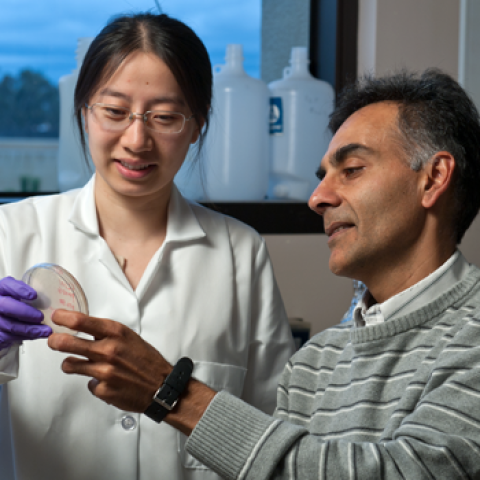 AGILENT-SUPPORTED AFFILIATE PROJECT - 2013
AGILENT-SUPPORTED AFFILIATE PROJECT - 2013
Chaitan Khosla (Chemistry and Chemical Engineering)
Ron Davis (Genetics)
Multimodular polyketide synthases (PKSs) are enzymatic assembly lines responsible for the biosynthesis of many structurally and pharmacologically diverse antibiotics. They are typically found in bacteria, and are encoded by unusually large, clustered gene sets. The 6-deoxyerythronolide B synthase (DEBS), which catalyzes formation of the macrocyclic core of the antibiotic erythromycin, is a prototypical example of an assembly line PKS.
Historically, most polyketide antibiotics were discovered through activity-guided isolation, long before their PKS gene clusters were sequenced. We estimate that the genes encoding multimodular PKSs corresponding to approximately 200 structurally characterized polyketides have been sequenced. At the same time, as genome sequencing has become easier, the number of cryptic assembly line PKS gene clusters in the NCBI database has far surpassed the number of clusters whose products are known. These cryptic sequences have been dubbed “orphan PKS” gene clusters. As a first step toward discovering this goldmine of new antibiotics, we have cataloged ~900 known and orphan assembly-line PKS sequences. Now, with the support of Agilent, we would like to start decoding the molecular logic and product profiles of the orphan PKSs. Support from Agilent’s University Grants Program is requested to jump-start this effort. Additionally, we also seek access to Agilent’s custom-synthesized oligonucleotide library chips for the synthesis and assembly of large PKS genes for heterologous expression in E. coli. The average PKS gene cluster is 30 kb in length, so oligonucleotides enabling the synthesis and assembly of ~300 kb DNA are requested in the pilot phase of this project.



